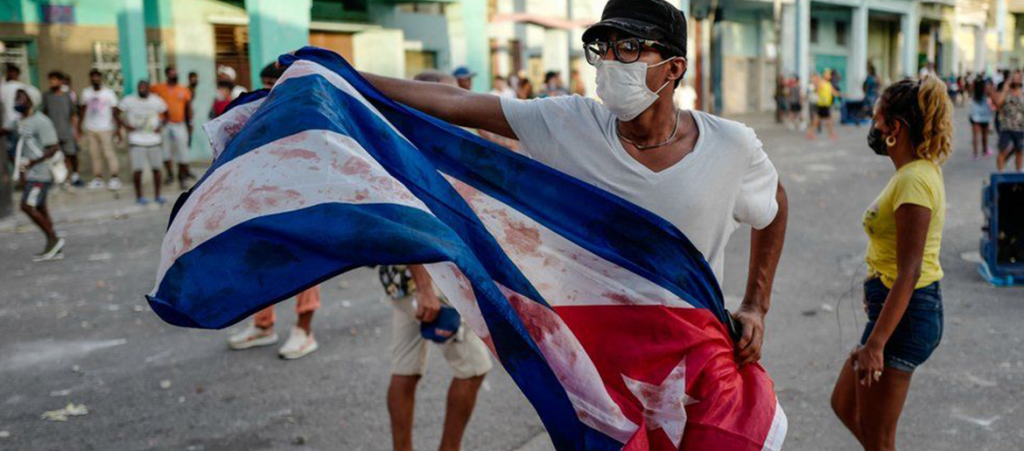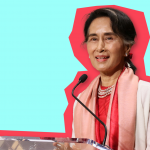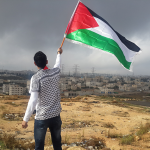
On July 11, protests exploded across Cuba. Demanding an end to Cuba’s communist regime, the protestors marched for “freedom”, calling attention to the food scarcity, medicine shortages and economic turbulence facing the country. One person is dead and more than 100 have been arrested. But if news of the protests has come as a shock to you, you’re not alone – the international community hasn’t heard such loud dissent from Cuban nationals over their conditions in a long time. What exactly has prompted the protests – why now – and what will happen next?
Here’s what you need to know.
Some background context
Cuba has been a communist country since the 1959 Cuban Revolution, pioneered by the infamous Fidel Castro – the anti-American revolutionary that changed the political climate of Cuba forever.
A recap on communism: It’s a political system in which the public collectively own all the nation’s property and assets, with each person contributing to the economy (through their work and labour) and receiving whatever goods, services or care they need. Under communist theory, a person can work as much as they want or are able to and their quality of life wouldn’t be impacted – they would still be taken care of. Although this sounds great in theory, communism can have devastating effects in practice. Communist regimes can be very susceptible to manipulation and corruptions – Cuba is no stranger to this.
In 2018 Cuba gained a new president, Miguel Díaz-Canel. When Díaz-Canel gained power from Raúl Castro (Fidel Castro’s younger brother), the Internet started to become a lot more accessible to Cubans. Prior to the accessibility of the internet, the Cuban government was known for repressing any criticism or dissent of its regime. This is part of the reason why there was little coverage of the growing issues and opposition in Cuba. But once Cubans started using the Internet to grow and spread their anger at the actions of the regime, the floodgates opened.
Why are people protesting?
So many factors have combined to ultimately spark the current protests in Cuba. Firstly, like many countries around the world, Cuba is experiencing its worst economic crisis in 30 years. Not only has its tourism industry been affected by COVID-19 (one of the biggest sectors of its economy), but decades of economic and political sanctions imposed by the US has disrupted the flow of trade between the two countries. The US has been one of the biggest factors in Cuba’s economic crisis – last year alone, these sanctions have had an estimated US$5.5billion negative impact on Cuba.
On top of that, the Cuban government’s decision to combine their two forms of currency into one in December 2020 has caused high inflation – expected to be more than 500% this year. Because these economic decisions have tanked Cuba’s economy while it still operates a communist system where the people ‘own’ the economy, almost no one can escape unscathed.
The protestors are calling out the government’s inability to adequately control and distribute resources. There have been long lines and shortages for food and medicine, as well as constant electricity outages which many point to as the initial trigger for the current protests.
Then, there’s COVID. Protestors are also calling for more action by the government to control the virus. In 2020 Cuba had managed to keep the number of cases under 100. But a huge spike mid-June 2021 has seen the country reach over 6000 average new cases a week… and with no access to the vaccines. Hospitals are on the brink of collapse.
To add to this already tense social landscape, the Cuban shut down the Internet during the protests, causing more hysteria. In a televised address, President Díaz-Canel said “this story that they’re trying to compile [on social media] that the Cuban government is repressive… is a complete lie and libel.” He also called it “media terrorism”. The Internet has since been restored, however access to social media and messaging apps like Facebook and WhatsApp remained blocked on 3G and 4G networks. As we know from protests in Myanmar and India, blocking the public’s Internet access is a hostile move by government regimes and never calms the unrest.
Why are the protests significant?
These protests are the biggest since the 1959 Revolution and the first protests Cuba has seen for decades. It’s also the first time in the 62-year history of Cuba’s regime that the government is being led by someone who had no involvement in the Cuban Revolution. This shift of power has been seen as a sort of ‘way in’ for the people of Cuba to regain some sense of control – which you can see in the way protestors have repurposed Fidel Castro’s revolutionary slogan. Rather than “Patria o muerte” [homeland or death], they’re chanting “Patria y vida” [homeland and life].
@torinoodles Hands Off Cuba ##fyp ##politics ##leftist ##liberal ##socialism ##communism
♬ original sound – Noodles (they/any)
What needs to happen next?
The United Nations says it is monitoring the ongoing protests in Cuba, and has called on the government to respect the rights of freedom of expression and peaceful assembly. Despite changing the constitution in 2019 to honour those rights, the government still has maintained the power to challenge protests of a ‘political nature’. But when you consider that all protests are essentially ‘of political nature’, it’s clear the constitutional change was never intended to be impactful.
The Cuban people are suffering. They are calling on their government to find the resources they need to survive, allocate those to the people (as the system intends), reinstate the Internet and, ultimately, listen to the public. The protestors demands are clear: “Down with the dictatorship.”
A response from the U.S. could also relieve some of the pressure. The US needs to have a healthy relationship with Cuba – not only for trade and economic reasons, but also because Cuban Americans make up a significant percentage of the voting population in states like Florida. President Joe Biden has said he supports the Cuban protestors and their calls for freedom from “the decades of repression and economic suffering.” But hasn’t yet removed or scaled back the U.S. economic sanctions, despite saying that he would do so while in office. While many experts say the U.S. must do something, foreign intervention in crisis is complicated and will not entirely solve the problems the Cuban people have with their government.
All of that to say: it’s not clear what happens next, or when the suffering of the Cuban people will ease. For now the most young Australians can do is watch the protests in Cuba with solidarity and support.


